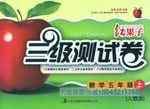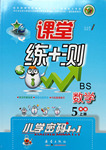题目内容
There was a little boy visiting his grandparents on their farm. And he was given a slingshot(S单弓) to play with out in the woods. He _ in the woods, he could never hit the .And getting a little discouraged, he headed back to dinner.
As he was walking back he saw Grandma's pet duck. Just out of impulse (冲动), he let fly, hit the duck square in the head, and killed it. He was shocked and felt very sorry.In a panic, he hid the duck in the wood pile, only to see his sister .Sally had seen it all, but she said nothing.
After lunch that day grandma said, “Sally, let’s wash the dishes.” But Sally said, “Grandma, Johnny told me he wanted to help in the today, didn't you, Johnny?" And then she whispered to him, “Remember, the duck?"
So Johnny the dishes. Later Grandpa asked if the children wanted to go fishing, and said, " I’m sorry but I need Sally to help make ." But Sally and said, “Well, that's all right because Johnny told me he wanted to help," and she whispered ,“Remember, the duck?" So Sally went fishing and Johnny .
After several days of Johnny doing his various small tasks and Sally's, he .couldn't stand it any longer.He came to Grandma and that he killed the duck.She bent down, gave him a , and said, “Sweetheart, . You see, I was standing at the window and I saw the thing. But because I love you, I forgave you. But I was just wondering how you would let Sally make a slave you."
As he was walking back he saw Grandma's pet duck. Just out of impulse (冲动), he let fly, hit the duck square in the head, and killed it. He was shocked and felt very sorry.In a panic, he hid the duck in the wood pile, only to see his sister .Sally had seen it all, but she said nothing.
After lunch that day grandma said, “Sally, let’s wash the dishes.” But Sally said, “Grandma, Johnny told me he wanted to help in the today, didn't you, Johnny?" And then she whispered to him, “Remember, the duck?"
So Johnny the dishes. Later Grandpa asked if the children wanted to go fishing, and said, " I’m sorry but I need Sally to help make ." But Sally and said, “Well, that's all right because Johnny told me he wanted to help," and she whispered ,“Remember, the duck?" So Sally went fishing and Johnny .
After several days of Johnny doing his various small tasks and Sally's, he .couldn't stand it any longer.He came to Grandma and that he killed the duck.She bent down, gave him a , and said, “Sweetheart, . You see, I was standing at the window and I saw the thing. But because I love you, I forgave you. But I was just wondering how you would let Sally make a slave you."
| 小题1: |
|
| 小题2: |
|
| 小题3: |
|
| 小题4: |
|
| 小题5: |
|
| 小题6: |
|
| 小题7: |
|
| 小题8: |
|
| 小题9: |
|
| 小题10: |
|
| 小题11: |
|
| 小题12: |
|
| 小题13: |
|
| 小题14: |
|
| 小题15: |
|
| 小题16: |
|
| 小题17: |
|
| 小题18: |
|
| 小题19: |
|
| 小题20: |
|
小题1:C
小题2:D
小题3:B
小题4:A
小题5:D
小题6:B
小题7:C
小题8:A
小题9:C
小题10:B
小题11:A
小题12:B
小题13:D
小题14:C
小题15:C
小题16:D
小题17:A
小题18:B
小题19:D
小题20:A
试题分析:文章大意:Johnny因为无意中打死了奶奶的鸭子,被姐姐Sally看到,而姐姐没有告状,却处处支使弟弟替自己干活,终于有一天Johnny忍不住向奶奶承认了错误。没想到奶奶早就知道了……
小题1:考查动词辨析。A.walked走,B.played玩,C.practiced练习,D.aimed目的,根据后句话but he could never hit the target“他从来没能射中目标”可知前面是说“他在树林里练习弹弓。选C
小题2:考查连词辨析。A.or或者,B.and并且,C.so所以,D.but但是,但是他从来没能射中目标,表示转折关系,选D
小题3:考查名词辨析。A.bird鸟,B.target目标,C.duck鸭子,D.woods树林,但是他从来没能射中目标,选B
小题4:考查形容词辨析。A.dead死了,B.square发行的,C.dying快要死了,D.living活着的,前句说到he let it fly, hit the duck in the head他让鸭子飞起来,打中了它的头部,所以后面就是说把鸭子给“打死”了。打死鸭子因为害怕,所以他把死了的鸭子藏在了木头堆里。选A
小题5:考查动词辨析。A.surveying调查,B.noticing注意,C.observing 观察,D.watching观看,藏起来之后,姐姐Sally把整个过程都看见了。选D
小题6:考查名词辨析。A.toilet厕所,B.kitchen厨房,C.living-room起居室,D.fields田野,从前面的句子:After lunch that day grandma said, “Sally, let’s wash the dishes.”可知是到厨房帮忙,选B
小题7:考查动词辨析。A.watched观看,B.dropped扔掉,C.did做,D.made制作,所以Johnny就去洗碗了,do the washes,选C
小题8:考查名词辨析。奶奶说做饭需要人帮忙,从后文知道奶奶早就知道了Johnny把鸭子打死的事情,也知道Sally在故意刁难Johnny,所以这时奶奶故意说让Sally留下来帮忙做饭。选A
小题9:考查名词辨析。A.cook厨师,B.lunch午饭, C.supper晚饭,D.breakfast早饭,从前面的:After lunch that day grandma said,可知午饭吃完了,是准备晚饭,选C
小题10:考查动词辨析。A.laughed笑,B.smiled微笑,C.cried哭,D.wept哭泣,根据后一句but Johnny told me he wanted to help。所以可推知Sally故意笑着说,“好吧”选B
小题11:考查副词辨析。A.again 再次,B.only唯一的,C.twice两次,D.loudly大声的,从前面的:And then she whispered to him,这时应该是再次以很低的声音偷偷说给Johnny,选A
小题12:考查动词辨析。A.followed跟随,B.stayed停留,C.remembered 注意,D.boated船,所以sally去钓鱼,Johnny留下来,选B
小题13:考查代词辨析。A. all所有的,B.either两者中任何一个,C.neither两者都不,D.both两者都,从上文提到的两件事一个是洗碗另一个是做饭,所以是both,选D
小题14:考查副词辨析。A.secondly第二,B.firstly第一,C.finally 最后,D.thirdly第三,Johnny天天都受姐姐的支使,几天之后就终于忍受不住了。选C
小题15:考查动词辨析。A.lied撒谎,B.denied否认,C.admitted承认,D.spoke说话,这儿Johnny向奶奶承认了自己把鸭子射死的事实。选C
小题16:考查名词辨析。A. beat 击打,B.pet宠物,C.surprise 惊讶,D.hug拥抱,奶奶弯下腰拥抱了Johnny,选D
小题17:考查动词辨析。从下文的:I was standing at the window and I saw the 38 thing.可知奶奶说我知道了,选A
小题18:考查形容词辨析。A.other其他的,B.whole 整个的,C.funny滑稽的,D.dull枯燥的,我站在窗户旁边,看见了整个的事情,选B
小题19:考查形容词辨析。但是奶奶又说“我只是想知道你想让Sally支使你多长时间。根据句意选择D。
小题20:考查介词辨析。”make a slave of sb “把某人当奴隶”,选A

练习册系列答案
 红果子三级测试卷系列答案
红果子三级测试卷系列答案 课堂练加测系列答案
课堂练加测系列答案
相关题目